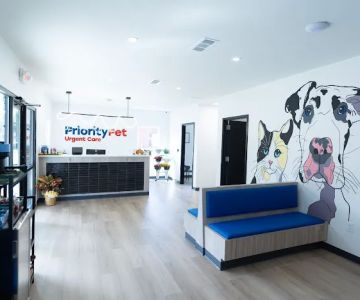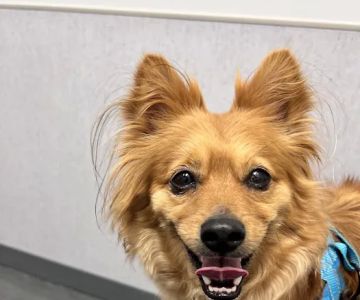How to Care for a Dog After Neutering: Essential Tips for a Smooth Recovery
Neutering your dog is a common procedure that can have numerous benefits for both you and your pet. However, ensuring that your dog recovers well after the surgery is crucial for its health and well-being. As a dog owner who has experienced the neutering process firsthand, I understand the concerns and challenges that come with caring for your furry friend post-surgery. In this article, I'll walk you through the essential steps for caring for a dog after neutering to help you navigate the recovery process smoothly.

1351 Stonebridge Pkwy Suite 102, Watkinsville, GA 30677, USA
See Details1. Understanding the Neutering Process
Before diving into the recovery tips, it’s important to understand what neutering involves. Neutering, also known as spaying or castrating, is a surgical procedure where the reproductive organs of a dog are removed. This is commonly done to prevent unwanted pregnancies and can also help reduce the risk of certain health issues like prostate problems and testicular cancer in males.
While neutering is a relatively simple and routine procedure, it does require proper post-operative care. The recovery time can vary depending on the individual dog, the age, and its overall health. Typically, the healing process takes about 7 to 14 days. During this time, you'll need to ensure that your dog rests properly, follows specific activity restrictions, and gets adequate care to prevent complications.
2. Post-Surgery Rest and Recovery
The first and most important thing you should focus on after neutering is ensuring that your dog gets enough rest. Just like any other surgery, neutering requires time for your dog to recover. You should keep your dog in a quiet and comfortable space away from other pets and distractions, as too much activity can disrupt the healing process.
It’s common for dogs to feel groggy or lethargic right after the procedure, so don’t be alarmed if your dog seems more tired than usual. This is normal and part of the healing process. However, after a few days, they should begin to feel more energetic and alert. If your dog seems unusually lethargic for more than a few days, it’s important to consult your vet to rule out any complications.
3. Managing Your Dog’s Pain
Pain management is another crucial aspect of post-neutering care. Your vet will likely prescribe pain relief medications to help manage any discomfort your dog may experience after the surgery. It’s essential to follow the prescribed dosage and frequency for these medications, and always check with your vet if you have any concerns about side effects or potential interactions with other medications your dog is taking.
In addition to medications, there are other ways you can help alleviate your dog’s pain. For example, providing a warm, comfortable bed can make your dog feel more at ease and help minimize discomfort. Soft bedding or a cushioned mattress is a great option to reduce pressure on the incision site. Keep an eye on the surgical area for signs of swelling or redness, as this could indicate infection, which will need prompt medical attention.
4. Preventing Your Dog from Licking or Biting the Incision
One of the biggest challenges after neutering is preventing your dog from licking or biting the incision site. This is important because licking can introduce bacteria into the wound, increasing the risk of infection. To prevent this, your dog will likely need to wear an Elizabethan collar, also known as a cone of shame, for several days after surgery.
While it may be uncomfortable for your dog at first, the cone is essential for protecting the incision and promoting healing. Make sure the cone is properly fitted and doesn’t cause your dog too much distress. If your dog resists wearing the cone, you might consider alternative options like inflatable collars or soft collars that are gentler on your dog’s neck and body.
5. Monitoring Your Dog’s Eating and Drinking Habits
After the surgery, your dog may experience a decrease in appetite for a day or two. This is common and usually resolves on its own. However, if your dog refuses food or water for more than 24 hours, you should contact your vet to ensure that there are no complications. Hydration is especially important, so make sure your dog has access to fresh water at all times.
Once your dog starts feeling better, it’s important to feed them the same balanced diet they were on before the surgery. Avoid feeding your dog any rich or fatty foods that could upset their stomach. If your vet has prescribed any special diet during the recovery period, be sure to follow the instructions carefully.
6. Activity Restrictions After Neutering
One of the most critical aspects of post-neutering care is limiting your dog’s physical activity. While it’s important for your dog to get some light exercise, such as short walks, you should avoid vigorous activities like running, jumping, or playing with other pets for at least 10 to 14 days. Engaging in strenuous activities too soon can strain the incision site and delay healing.
Keep your dog indoors and avoid letting them run around or play in the yard. If you have other pets, try to keep them separated to prevent any roughhousing that could cause injury. Gradually reintroduce your dog to their usual routine once your vet confirms that it’s safe to do so.
7. When to Contact Your Vet
While most dogs recover from neutering without any issues, there are certain signs you should watch for that could indicate complications. These include excessive swelling, bleeding, or discharge from the incision site, difficulty walking, vomiting, diarrhea, or a loss of appetite that lasts more than 24 hours.
If you notice any of these symptoms, it’s important to reach out to your vet immediately. Prompt attention can help prevent more serious complications and ensure your dog’s recovery is as smooth as possible.
In conclusion, caring for your dog after neutering is an important responsibility, but it can also be a rewarding experience. By following these tips and keeping a close eye on your dog’s recovery, you can help ensure that they heal properly and get back to their happy, healthy self in no time. If you need any advice or assistance, feel free to visit Hidden Brook Veterinary for expert care and guidance during your dog’s recovery process.










